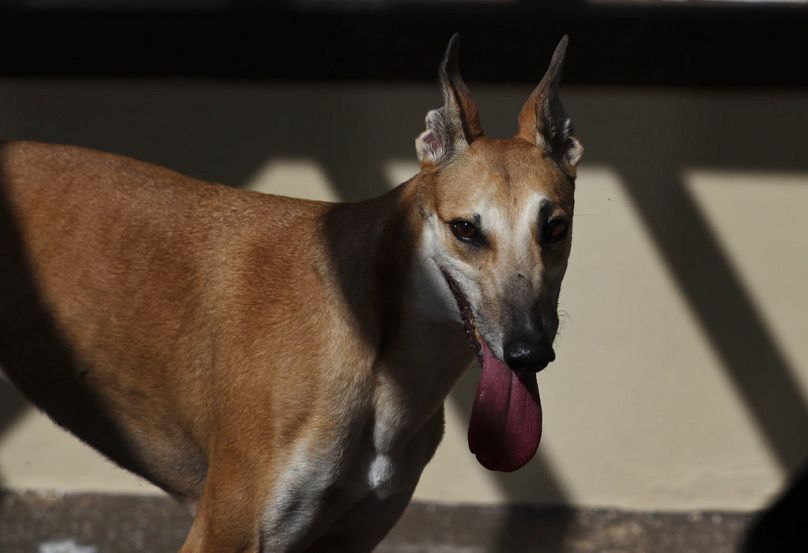Animal welfare charity is mounting a new campaign to have the sport outlawed by the British government.
One of the UK's oldest pet welfare charities is renewing its efforts to outlaw one of Britain's most distinctive sports – and it believes both data and public opinion are on its side.
Blue Cross, which was established at the end of the 19th century to care for horses working on the streets of London, aims to get greyhound racing banned in England, Scotland, Wales and Northern Ireland, four of the 10 countries worldwide where it remains legal.
According to the charity, between 2018 and 2022, a total of 2,239 greyhounds involved in the sport died "untimely deaths", with more than 22,000 injuries reported.
While supporters of greyhound racing often say it is a beloved part of British culture, Blue Cross says a survey it conducted showed that 91% of the British public "neither engage in nor support" the sport.
Its proposal is that the government should phase in a ban over the course of five years, giving the industry time to wind down its activities while racing dogs can be placed with responsible, loving owners.
Blue Cross is far from the only animal charity trying to secure a ban on racing. The League Against Cruel Sports has campaigned at the local level to stop new tracks being opened, while the RSPCA, the Dogs Trust and others have joined in the broader campaign to bring the sport to an end.
To boost its campaign, Blue Cross has produced numerous case studies detailing how injured and aged racing greyhounds can be rescued and rehomed as pets in loving homes.
"Woody arrived in Blue Cross care in 2019 from another charity with a terrible injury sustained on the racetrack," the charity recounts in a press release. "Vets initially suspected he had a broken leg, but it turned out to be a joint dislocation which required three months of strict rest, bandaging, splints and pain relief. It was a stressful time for Woody, but our Southampton rehoming team tried to brighten up his days as much as possible with time spent in their company behind reception.
"Once he was well enough, we found Woody, now six, a foster home where he could continue his recovery and start to enjoy gentle walks to build up muscle," it added. "After seven months in Blue Cross care, Woody found a loving family. He continued to be slightly lame but this is managed with ongoing pain relief and controlled exercise."
There is ample precedent in the UK for banning sports that result in injury to animals or pit them against each other.
In the late 1990s and early 2000s, the government outlawed the hunting of foxes with packs of dogs. The ban faced enormous opposition from a range of groups, many of whom argued that the ruling Labour Party was exploiting the issue to wage a "class war".
Others opposed the ban for more practical reasons, claiming the government was dominated by metropolitan MPs and members who failed to understand hunting's role in rural life and land management.
Other sports which have been outlawed for a long time still continue in illicit forms. Particularly concerning for animal rights groups is the continued underground practice of badger baiting, the extremely violent and sadistic killing of wild badgers with trained dogs, which was first banned in 1835.












